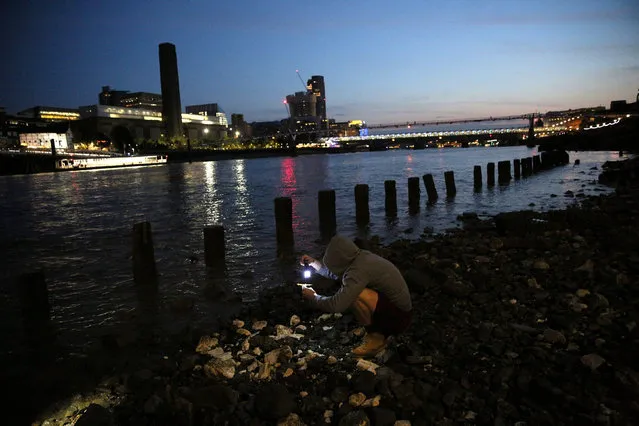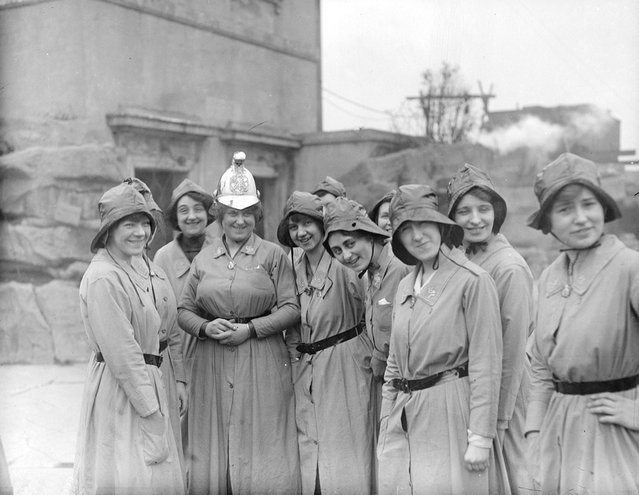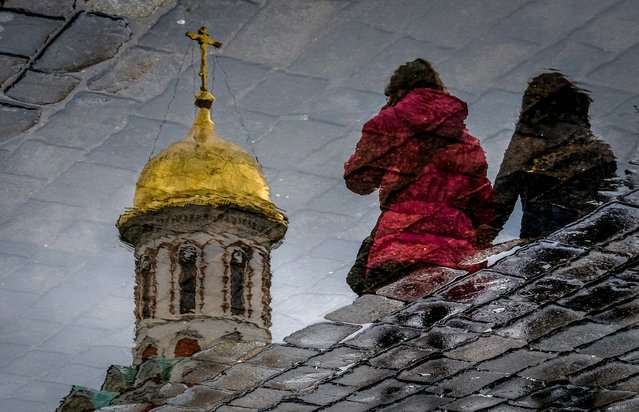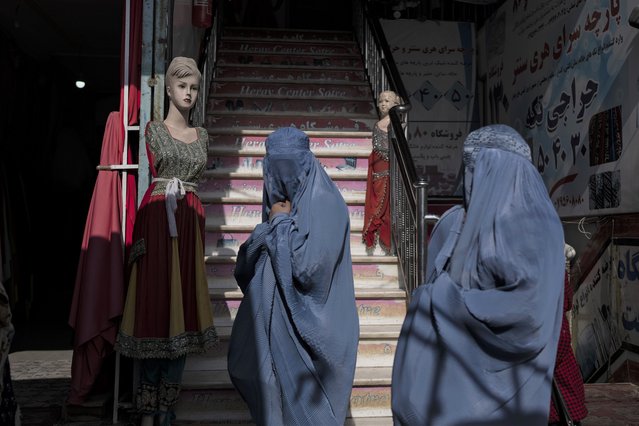
Participants with the word “Harta” on their bodies, link arms as they mark International Women's Day at Avenida 18 de Julio in downtown Montevideo, Uruguay March 8, 2021. The word is a term to say exhausted or “had enough” but used by women. (Photo by Mariana Greif/Reuters)
09 Mar 2021 12:23:00,post received
0 comments







